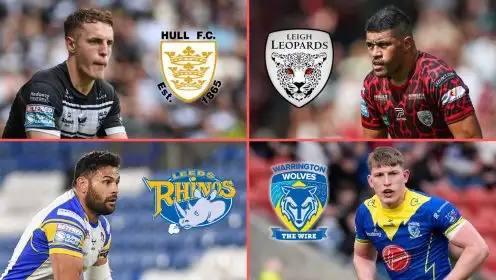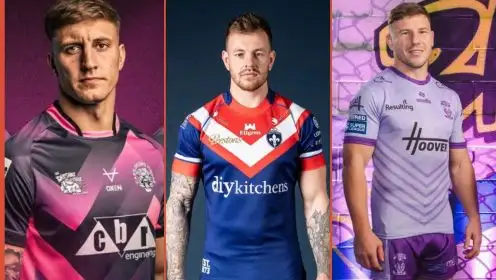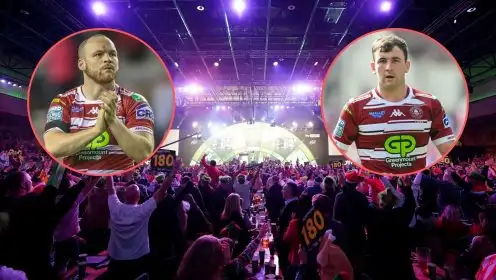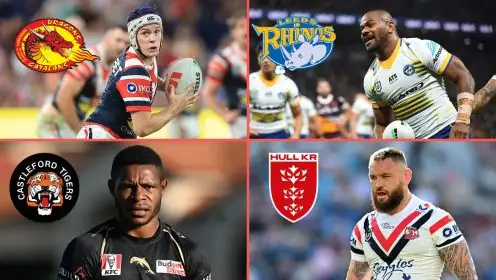Clive Sullivan: The remarkable story of rugby league’s trailblazer
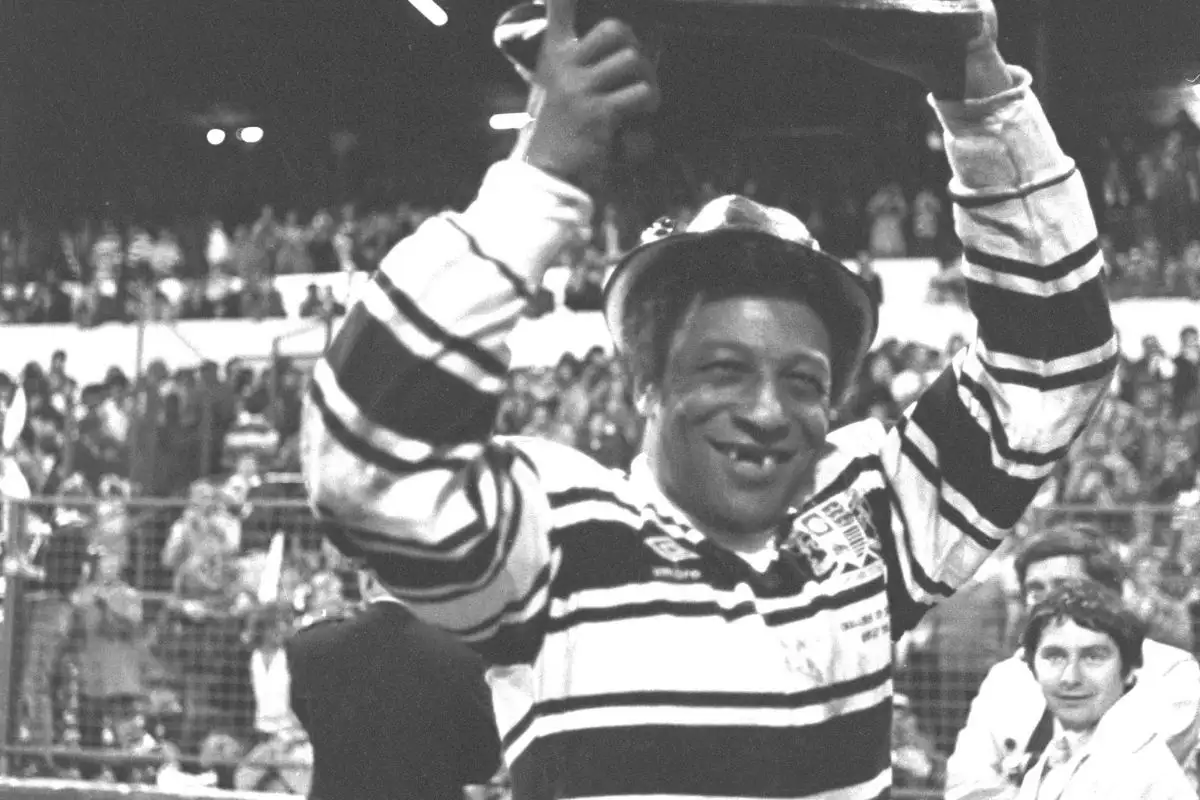
Clive Sullivan is a name which is instantly recognisable across the world of sport. The Welsh-born winger would write his name in the history books, becoming the first black captain of any Great British side.
It sounds like a remarkable story in itself. However, Sullivan would defy the odds on a number of occasions, before and throughout his career.
After being told he may never be able to walk properly, being turned down by Bradford Northern and nearly dying in a car crash, Sullivan became one of rugby league’s star players.
Sullivan was born in Wales in 1943 to parents from Antiguan and Jamaican heritage. He started playing rugby union at school.
Whilst playing, he picked up a number of injuries, some of which required surgery. This is when doctors thought that Sullivan would be unable to even walk normally again; yet alone pursue a career in rugby.
Joining the Army after leaving school
After leaving school he joined the army, despite his injuries he remarkably passed the fitness tests required to join.
He was posted to Catterick, in North Yorkshire. Whilst serving he was picked to play in a game of rugby, knowing that if he were to pick up an injury, his career in the army would be over.
Because of this, Sullivan intended to deliberately have a poor game, ensuring that he wasn’t picked again.
However, this didn’t go to plan, as his instinct seemingly took over as he scored a length of the field try, his talent as a rugby player was clear to see.
Following this game, Sullivan decided to try and pursue a career in rugby, regularly playing in games for the army.
It wasn’t long before he attracted attention from teams around the area. Bradford Northern (now Bradford Bulls) offered him a trial.
IN TRIBUTE: Clive Sullivan: Great Britain’s first black captain who broke down barriers
A trial with Hull
He wasn’t successful in his trial with the West Yorkshire side. However, the touch judge from the game approached him, and offered him a trial at Hull FC.
Sullivan accepted, and this time it was a different story. After scoring a hat-trick, a 17-year-old Sullivan was offered a professional contract just a day later.
After signing for Hull, Sullivan continued to serve in the army for the first three years of his contract; a period of time where he would pick up a number of injuries, which again required surgery.
A car crash would nearly prove to be fatal in 1963, but Sullivan again defied the odds and pulled through; and only three months later, he returned to the field.
A year later, Sullivan left the army and began playing rugby league on a full-time basis. Impressing in his first few games for Hull, he would quickly become a fan favourite.
He became known for his lightening quick pace and was a prolific try scorer for the Black and Whites. He scored some huge tries, including in the Yorkshire Cup final win over Featherstone.
Follow Love Rugby League on Instagram
Great Britain call-up
In 1967, Sullivan was called up to the Great Britain side for the first time. He didn’t fail to impress, scoring two tries in a test against France. A year later he became the first British player to score a hat-trick in a World Cup, which saw Great Britain to a 38-14 win over New Zealand.
Sullivan was now a star across the globe. He had defied the odds to walk normally, to join the Army, and to become a rugby league player. But more history beckoned for the man from Wales.
In 1972, before a series against France, Sullivan was named as the captain of the Great British rugby league side. The first black person to do so, in not just rugby league, but in any sport.
Captaining the side was one thing, but Sullivan was as successful as any, as he led his side to world cup glory later that year, scoring a sensational try in the final against Australia.
He would make his final appearance for Great Britain a year later, but he wasn’t finished on the international stage just yet, as he represented Wales in the first five team World Cup tournament two years later, scoring a try in a 12-7 win over England.
At club level, in 1974 Sullivan made the move across the city of Hull, as he joined Hull FC’s rivals, Hull Kingston Rovers.
Sullivan would continue to be successful, and in 1980 he got his hands on the Challenge Cup.
The final, at Wembley, saw Sullivan face his former side, as the Hull derby caught the eyes of the nation in a thrilling game as the Robins were 10-5 winners.
To Oldham and back
That year Sullivan left Hull, making the switch to Lancashire where he played his trade at Oldham; the move was short lived, and after just 18 appearances he made the move back to East Yorkshire, returning the Hull FC in a coaching role.
Two years later, Sullivan defied the odds once more, as he got his hands on the Challenge Cup again.
After a 14-14 draw at Wembley, Hull FC and Widnes faced each other in a replay at Elland Road in Leeds.
At the age of 39, Sullivan was called into the squad for the game in which the black and whites ran out 18-9 winners, Sullivan lifting the cup for the second time.
Sullivan retired from the sport following a stint with Doncaster in 1984.
He had made 639 appearances for club and country, scoring a grand total of 1,218 points during that period.
In 1985, Sullivan passed away after a battle with liver cancer. He left a lasting legacy in both the sport and the city of Hull.
Clive Sullivan Way
Clive Sullivan Way links the Humber Bridge to Hull city centre, whilst the city’s two clubs contest the Clive Sullivan trophy every season.

A statue of Sullivan, alongside fellow Welshmen, Gus Risman and Billy Boston will be built in their hometown of Cardiff.
It has also been announced that the match ball for the 2021 Rugby League World Cup will be named the Sully Ball.
THE SULLY BALL: World Cup ball named in honour of pioneer Clive Sullivan
Clive Sullivan was an icon of our game, but his impact on the sporting landscape as a whole has been huge.
It’s sad to think that there was a time that it was unthinkable that a sportsman would captain his country because of the colour of his skin, however Sullivan changed that.
Sullivan broke new ground, as the first black captain of a Great British side in any sport, he pathed the way for the sportsmen and athletes of today.
Clive Sullivan wasn’t just a trailblazer of rugby league, but a trailblazer for British sport.
READ MORE: Clive Sullivan: The Cardiff boy who captured Hull hearts
